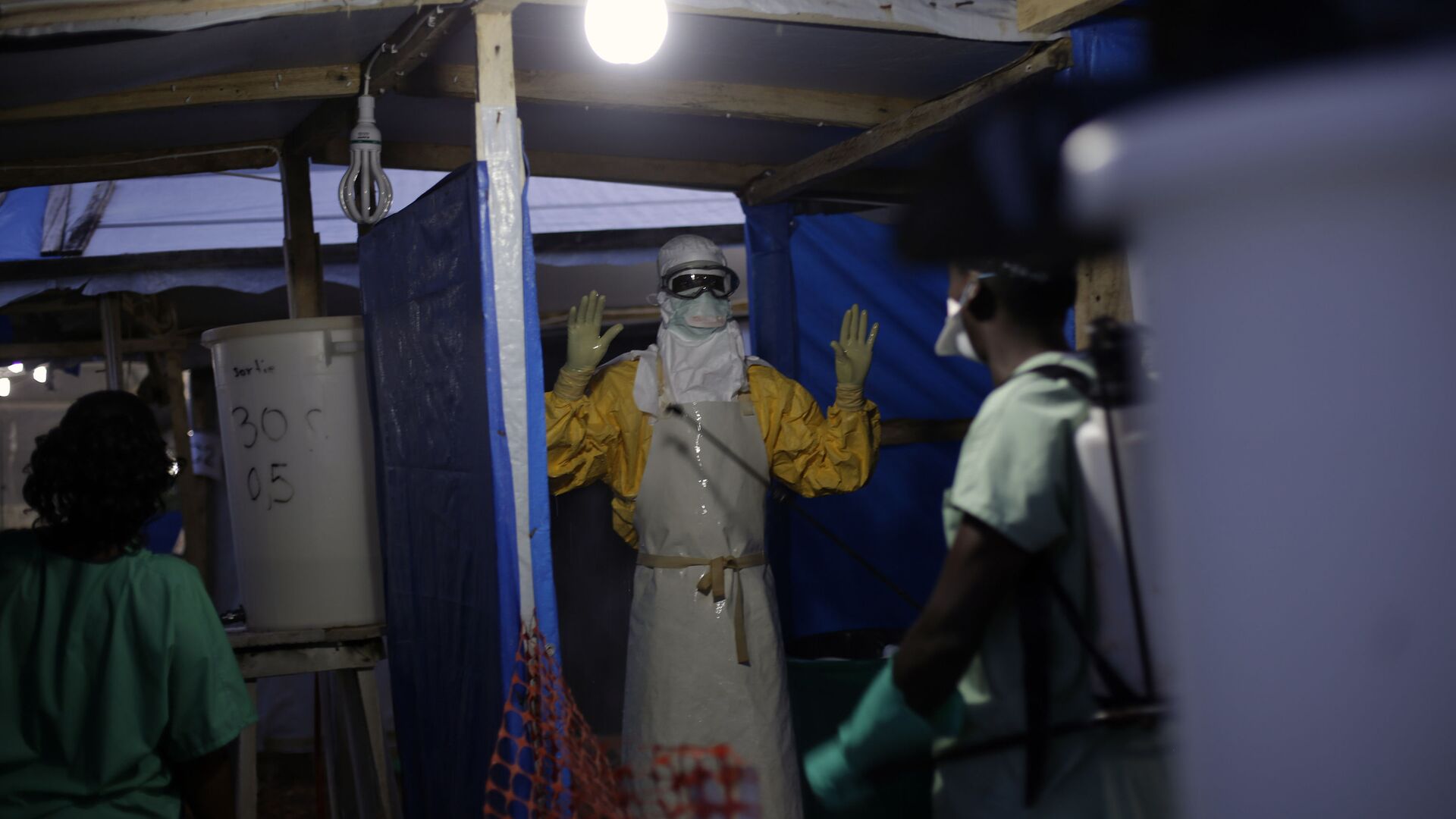WHO Adviser Says ‘Optimistic’ Ebola-Like Marburg Virus Outbreak in Guinea Can Be Contained
13:37 GMT 10.08.2021 (Updated: 11:00 GMT 24.11.2022)

© AP Photo / Jerome Delay
Subscribe
MOSCOW (Sputnik) Jonathan Rowson - There is optimism that medical officials can contain an outbreak of the Ebola-like Marburg virus in the African country of Guinea, where a man recently died of the hemorrhagic fever disease, Robert Steffen, an emeritus professor of epidemiology at the University of Zurich and a frequent adviser to the WHO, said.
Health officials in Guinea confirmed that one man had died from the disease, which causes headaches, vomiting, and bleeding, the WHO said on Monday.
Steffen, who has chaired the WHO’s emergency committee on Ebola, said hopes were high that the spread of the virus could be contained, given that contacts of the deceased individuals had yet to develop symptoms.
“As per three days ago, a single patient died on August 2 and his four high-risk close contacts were without any symptoms. A further 145 contacts have been identified and are being followed up. In view of the fact that the original patient had already developed symptoms on July 25, and knowing that the incubation period varies from 2 to 21 days, I am moderately optimistic and of course hopeful that this will not develop into a major outbreak,” he said.
The individual who died from Marburg virus disease was based in the Gueckedou district of Guinea, where cases of Ebola were registered earlier this year. It is the first ever case of the virus to be reported in West Africa.
Steffen said that officials were concerned that the Marburg virus could spread into the neighboring countries of Sierra Leone and Liberia.
The epidemiologist also noted that the mortality of the disease was highly dependent on the strain of the virus.
“While in Ebola outbreaks the case fatality rate always exceeds 60%, the outcome in Marburg virus disease depends on the virus strain: In Uganda in 2012 ‘only‘ 4 out of 17 (27%) died, whereas in the largest outbreaks, which occurred in 2005 in Angola (374 cases) and earlier in DR Congo (154 cases), 88 and 83% of the patients died, respectively,” Steffen remarked.
The Marburg virus shares similarities with avian flu and Middle East respiratory syndrome given that the virus is believed to be transmitted from animals to humans.
African fruit bats are believed to be the natural host of the Marburg virus, Steffen stated, underlining how animals and humans were in close contact in West Africa.
“Fruit bats are considered to be the natural host of the Marburg virus. In remote parts of Africa (and elsewhere) there has traditionally been close animal-human interaction, bats may be found at markets,” the WHO adviser said.
The last known outbreak of the Marburg virus was registered in the African country of Uganda in 2017. Three people died in the outbreak, which was reported in the eastern Ugandan districts of Kween and Kapchorwa.
Prior to the recent reports from Guinea, 12 major outbreaks of the Marburg virus have been reported since 1967.



